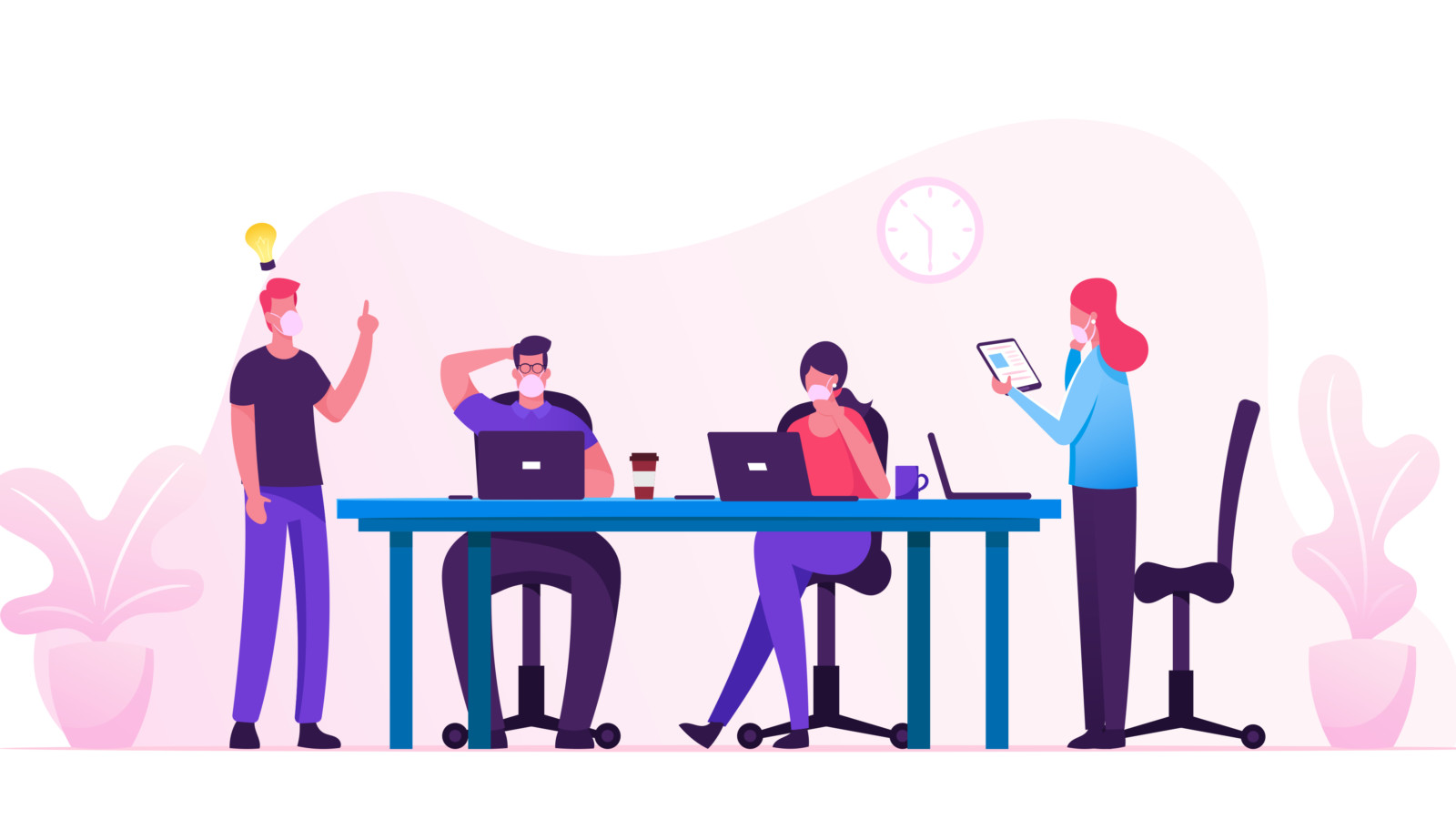America is getting ready to go back into the office. Though the Delta variant and the uptick in the pandemic may be slowing that transition, companies are making plans to reopen their offices. According to a recent survey by the recruiting firm LaSalle Network, three-quarters of American companies are either reopening offices and bringing employees back for in-person work or making plans to. And with re-entry comes… re-entry anxiety.
In an American Psychological Association poll, nearly half of respondents said they feel anxious about returning to in-person interaction. That’s no doubt at least one reason why so many people say they’d rather continue working from home than head back into the office. And even before the pandemic, anxiety disorders were the most common mental illness in the U.S., affecting 18% of adults and 25% of children. But despite how widespread anxiety is, because we understand so little of what it actually is, we don’t know how to manage it in our day-to-day lives. Transitions are, of course, big drivers of anxiety. And no matter whether you’re going to continue working as you’ve been for the last year, or be heading back to the office full-time or figuring out some form of hybrid work, this next phase in our lives is already causing anxiety for many.
And I’m one of them. That’s why I was so excited to have Dr. Judson Brewer as a guest on a recent episode of Deloitte’s “WorkWell” podcast, which is about ways we can improve our well-being and life-work integration. Dr. Brewer is a renowned neuroscientist and psychiatrist who specializes in addiction and anxiety. Currently, he’s an associate professor at Brown University and executive medical director at Sharecare. His new book, a New York Times best seller, is Unwinding Anxiety: New Science Shows How to Break the Cycles of Worry and Fear to Heal Your Mind.
As someone who has suffered from anxiety himself, Dr. Brewer has used the term “mesearch” to describe his work into the phenomenon. And he’s noticed commonalities between anxiety and addiction. The definition of the latter is continued use despite adverse consequences. As he noted, this can apply to many of the behaviors that we use to deal with our anxiety, like losing ourselves in social media or binge-watching shows.
Anxiety, he explained, can become a kind of habit loop of worry, which can then, in turn, feed back on itself, driving “more anxiety through negative reinforcement, because it gives us a temporary distraction.” And often, those temporary distractions not only fail to address the root of the problem, they end up simply creating more bad habits.
But there is a way to actually break that negative feedback loop. It starts with awareness, which, as Dr. Brewer put it, “is what helps us see how rewarding something is in the present moment.” That means learning to recognize when our brains are going into a dead end of worry. And to do that, instead of distracting ourselves out of anxiety, or trying to stop it out of sheer willpower (a “dead end”), we can ask ourselves questions like, is worrying solving the problem? What am I getting by worrying? Am I judging myself? Is worrying making me perform better? As Dr. Brewer pointed out, studies show that worrying impairs our performance. And once we have more understanding of how anxiety can create these worry loops, we can begin to “map” our habits. And Dr. Brewer actually offers a free mapping tool at Mapmyhabit.com.
Once we become more aware of when we’re in a worry loop, we can begin to bring in curiosity. As Dr. Brewer explained, that’s very different from anxiety. “Anxiety feels more closed or contracted, whereas curiosity feels more open and expanded,” he told me. “You can’t be closed and open at the same time, because they are binary opposites. If we close down anxiety, we can actually inject some curiosity.”
And “when we are just truly trying to see things as they are, curiosity feels better,” Dr. Brewer says. When we use our curiosity to ask ourselves, for instance, what does this feel like in my body, where does it sit in my body, how does this feeling change over time, instead of saying, as Dr. Brewer put it, “Oh, no!” we can simply say, “Oh.” And each time we say “Oh,” Dr. Brewer says, “that’s a sign that we are awakening and fostering our curiosity.”
And that’s what allows us to create a new and more positive reinforcement habit loop. It’s what Dr. Brewer calls the “B.B.O.,” or the Bigger, Better Offer. “Our brain is going to learn that being curious about anxiety is that ‘Bigger, Better Offer,’ as compared to being lost or caught up in a cycle of anxiety and worry.” And once we “rinse and repeat,” we can create a new and more healthy habit.
Yes, uncertainty can drive anxiety, and this is a very uncertain moment. “Whatever our pandemic habit is, whether it’s working from home, whether it’s wearing masks in public, whether it’s not congregating with friends — and just thinking about congregating with friends without a mask can make people pretty anxious,” said Dr. Brewer. “Why? Because it’s uncertain, because they haven’t done it in a year.”
Whether or not we’re preparing to re-enter the office, we’re all preparing to enter a new phase of how we live and work. And if we bring greater awareness and understanding to what triggers our anxiety, when we use our curiosity to examine our anxiety without judging ourselves, we can begin to, as Dr. Brewer puts it, be “back in the driver’s seat, instead of being driven by anxiety.”
If you find yourself feeling anxious these days — and who doesn’t! — you’ll find this episode very useful. You can listen to the whole thing here.


